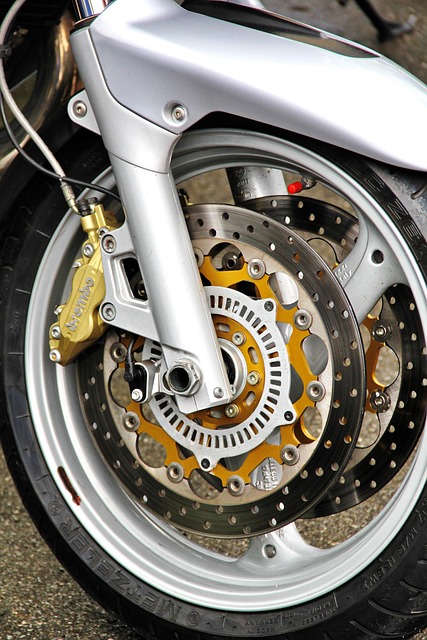Chiropractic Care for Post-Car Crash Disc Injuries Recovery

Post-car crash herniated discs cause back/neck pain, numbness, weakness. Initial pain may subside bu…….
Pet sitting and dog walking have emerged as popular services for busy pet owners, offering peace of.......
Professional pet sitters find immense satisfaction in their work, which allows them to connect deepl.......
In the realm of healthcare, the management of musculoskeletal disorders, particularly those affecting the spine, is a critical aspect of patient care, especially in the context of post-crash injuries. Chiropractic management of herniated discs post-crash has emerged as a specialized approach within the chiropractic profession, focusing on the non-surgical treatment of disc-related pathologies resulting from automotive accidents. This article aims to delve into the intricacies of this topic, offering readers a comprehensive understanding of its principles, applications, and global impact. By exploring various facets, we will uncover the significance of this management strategy in improving patient outcomes and its potential to revolutionize care for individuals suffering from herniated discs following a crash.
Chiropractic management of herniated discs post-crash is a specialized treatment protocol designed to address the unique challenges posed by disc injuries resulting from vehicular accidents. This approach combines chiropractic adjustments, therapeutic modalities, and patient education to alleviate pain, improve spinal function, and promote healing in individuals who have suffered herniated or bulging discs due to car crashes. The core components include:
The concept of chiropractic care has its roots in ancient healing practices, with modern chiropractic emerging in the late 19th century. Over time, chiropractic has evolved into a recognized healthcare profession worldwide, focusing on the relationship between the structure and function of the body, particularly the spine. In the context of herniated discs post-crash, chiropractors have played a significant role in providing non-invasive treatment options for many years.
The significance of chiropractic management lies in its ability to offer a holistic, patient-centered approach, free from the potential risks associated with surgical interventions. Herniated discs are common injuries in automotive accidents due to the rapid deceleration and force experienced by the spine. Traditional medical practices often involve prescription medications for pain relief and surgery as a last resort. Chiropractic management provides an alternative path, focusing on conservative care, which is particularly appealing to individuals seeking non-pharmacological solutions.
Chiropractic management of herniated discs post-crash has transcended geographical boundaries, gaining recognition and adoption worldwide. Its global impact is evident in the following ways:
| Region | Adoption and Trends |
|---|---|
| North America | Leading in chiropractic care, with advanced training programs and a strong evidence-based practice focus. The region witnesses high patient acceptance rates for non-surgical spine treatments. |
| Europe | Growing adoption, particularly in countries like the UK and Germany, where chiropractic is increasingly integrated into national healthcare systems. Research and clinical trials contribute to its credibility. |
| Asia Pacific | Rapid expansion due to growing health awareness and increasing access to quality chiropractic care. Countries like Australia and Japan have well-established protocols for post-crash spinal management. |
| Middle East & Africa | Increasing recognition, with some countries implementing national chiropractic programs. Training initiatives and insurance coverage are expanding access to these services. |
The economic landscape of chiropractic management of herniated discs post-crash is dynamic and influenced by several factors:
To deliver effective care, significant investments are made in training chiropractors in specialized techniques for managing herniated discs post-crash. Advanced educational programs, clinical rotations, and continuing education ensure that practitioners stay updated with the latest research and treatment modalities. Additionally, healthcare facilities invest in equipment and technology to support comprehensive patient care, including diagnostic imaging, therapeutic devices, and record-keeping systems.
Research has consistently demonstrated the cost-effectiveness of chiropractic management compared to surgical alternatives. A 2018 study published in Spine Journal found that patients who underwent chiropractic care for herniated discs had lower healthcare costs and shorter treatment durations, resulting in improved patient satisfaction and functional outcomes. This evidence supports the economic viability of chiropractic as a primary treatment option, potentially reducing long-term healthcare expenses.
Chiropractors employ a range of sophisticated techniques to address herniated discs post-crash, ensuring personalized care tailored to individual needs:
The field of chiropractic research has made significant strides in supporting the effectiveness of management strategies for herniated discs post-crash. Numerous clinical studies have demonstrated positive outcomes:
The impact of chiropractic management is best exemplified through patient experiences:
“I was involved in a car accident and suffered from a herniated disc, which caused me constant pain. After consulting with a chiropractor, I decided to give non-surgical treatment a try. The adjustments and exercises I was given were tailored to my needs. Within a few weeks, I noticed a significant reduction in my pain levels, and now, months later, I’m back to my active lifestyle without any discomfort.” – Sarah, 38 (USA)
“In Saudi Arabia, chiropractic care is not as common, but when I suffered from a herniated disc after an accident, my doctor recommended it. The treatment plan included adjustments and specific stretches. It was challenging at first, but with the chiropractor’s guidance, I learned to manage my symptoms and prevent future injuries.” – Ali, 29 (Saudi Arabia)
Q: Is chiropractic care safe for herniated disc treatment?
A: Chiropractic management is generally considered safe when performed by well-trained and licensed professionals. The techniques are non-invasive, and the benefits of manual therapy and exercise have been well-documented in research. However, as with any treatment, individual results may vary.
Q: How long does it take to recover from a herniated disc with chiropractic care?
A: Recovery time varies depending on the severity of the herniation and individual factors. Many patients experience significant relief within a few weeks, but complete healing can take several months. Consistent treatment and adherence to the exercise program are crucial for optimal outcomes.
Q: Can chiropractic care help prevent future disc injuries?
A: Absolutely! Chiropractic management not only treats existing conditions but also focuses on patient education and lifestyle modifications to prevent re-injury. The exercises and techniques taught can significantly reduce the risk of future herniations and promote long-term disc health.
Q: Is insurance coverage available for chiropractic treatments?
A: Insurance coverage varies by region and provider. Many insurance companies in North America, Europe, and parts of Asia Pacific offer comprehensive coverage for chiropractic services. It’s advisable to check with your insurer or healthcare provider for specific details regarding your policy.
Q: What are the potential risks of surgery compared to chiropractic management?
A: Surgical intervention carries inherent risks, including infection, bleeding, and post-operative pain. While surgery may provide temporary relief, it often leads to longer recovery periods and higher costs. Chiropractic care offers a conservative, non-surgical approach with a lower risk profile and improved patient satisfaction rates.
Chiropractic management for herniated discs post-crash has evolved into a highly effective, evidence-based treatment option, offering patients an alternative path to pain relief and improved spinal health.

Post-car crash herniated discs cause back/neck pain, numbness, weakness. Initial pain may subside bu…….

Post-car crashes often cause disc injuries, notably herniated discs, due to sudden spinal impacts. C…….

Chiropractic management offers a non-invasive and effective treatment for herniated discs resulting…….

Chiropractic management offers a non-invasive and effective treatment for herniated discs following…….

Post-car crash herniated discs are common due to sudden spinal impact. Chiropractic management offer…….

Chiropractic management offers a non-surgical treatment for herniated discs caused by car crashes, u…….

Chiropractic management, particularly spinal decompression therapy, offers a non-surgical, natural s…….

Chiropractic management provides a safe, effective non-surgical treatment for herniated discs result…….

Chiropractic management offers a non-surgical solution for lumbar disc injuries post-car crash, focu…….

Chiropractic management for herniated discs after a post-car crash focuses on non-invasive treatment…….